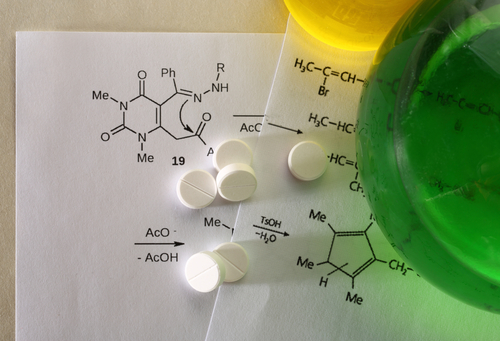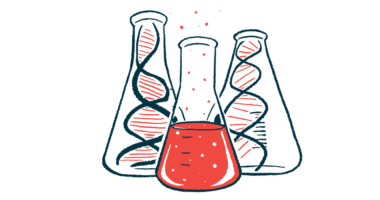Inhibiting cGAS Enzyme May Reduce Autoimmune Responses, Mouse Study Shows

Inhibition of a natural enzyme that works as a sensor for virus and bacteria invasions may reduce inflammation associated with autoimmune diseases, including systemic lupus erythematosus, according to a recent study.
The findings, reported in the study “Small molecule inhibition of cGAS reduces interferon expression in primary macrophages from autoimmune mice,” were published in the journal Nature Communications.
The immune system has enzymes that work as sentinels, detecting abnormal or damaged DNA molecules that result from invasion by foreign microorganisms or damaged cells. When activated by such DNA molecules, the sentinels trigger a network of signals that instruct immune cells to fight the potential treat.
Among those sensor enzymes is one called cyclic GMP-AMP synthase, also known as cGAS. The activity of this sensor promotes the production of the pro-inflammatory signaling protein interferon beta 1 (IFNB1) by macrophages, immune cells that engulf and digest foreign substances.
But because this mechanism also is known to be involved in several autoimmune disorders, researchers led by Manuel Ascano Jr., PhD, assistant professor of biochemistry, and pathology, microbiology, and immunology at Vanderbilt University School of Medicine, hypothesized that blocking the activity of cGAS could help regulate exacerbated immune responses seen in autoimmune disorders.
They tested 1,268 chemical compounds that potentially could inhibit cGAS, and they found four that specifically inhibited cGAS while retaining pharmacological features that could be translated into the clinics.
The researchers decided to further test one “chemically improved” compound, which they identified as RU.521.
To evaluate its effectiveness the team used macrophages exposed to damaged DNA molecules. Normally, this would induce cGAS activity and promote the production of interferon. But when RU.521 was present no interferon was produced, confirming cGAS inhibition.
RU.521’s inhibitory effect was further demonstrated in animal models of Aicardi-Goutières syndrome, an autoimmune disorder that presents clinical symptoms that overlap with lupus. Confirming the in vitro results, RU.521 exposure significantly impaired cGAS activity and reduced the levels of interferon produced by macrophages in these animals.
In summary, “we have discovered and characterized a small molecule that shows potent and selective inhibition of cGAS,” the researchers wrote.
“RU.521 will be useful toward understanding the biological roles of cyclic GMP-AMP synthase and can serve as a molecular scaffold for development of future autoimmune therapies,” they concluded.






